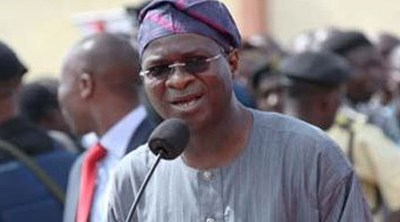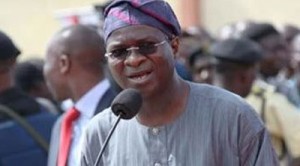
 …to procure N6.2bn transformers
…to procure N6.2bn transformers
The Federal Ministry of Power, Works and Housing and some of its agencies will be spending N6.562 billion to operate generators and buy transformers in 2017.
The ministry budgeted for generator maintenance alone the sum of N322.7 million in spite of the target of attaining 10,000 megawatts (mw) this year.
The ministry and some of its power agencies captured in the budget spent about N73.8 million in 2016 to operate generators. This is N248 million less than what the ministry and such agencies will spend in 2017 when power supply is expected to rise to 10,000mw.
The analysis of the 2016 Budget Act shows that the ministry spent N49.5m, REA spent N1.385m, NEMSA spent N9m, NAPTIN N10m and NELMCO N3.6m maintaining and fuelling generators in the year.
The plan to buy over 1,000 units of transformers is questionable as the 11 privatised Distribution companies (DisCos) now have the responsibility to invest in transformers, meters and other infrastructure in their franchise areas.
A breakdown of the 2017 budget proposal shows that the ministry’s headquarters in Abuja will spend N19.5m to maintain generators and plants; it will fuel them with another N16.2m. For the Housing section, it will spend N31.2m to maintain and service two 500KVA generators and one 250KVA.
The ministry, manned by the minister, Mr. Babatunde Fashola, will also spend N181.2m on generators without specifying their locations.
Five of the agencies whose generator expenses were captured in the budget would spend N74m in 2017: The Rural Electrification Agency (REA) will spend N488,000 for maintenance, and N3.1m for fuelling, and the Nigerian Electricity Regulatory Commission (NERC) will be spending N50m for generators.
The Nigerian Electricity Management Services Agency (NEMSA) will spend N7.5m for maintenance and fuelling; National Power Training Institute of Nigeria (NAPTIN) will spend N10.5m, while Nigeria Electricity Liability Management Company (NELMCO) budgets only N3m to maintain and power its generator.
N6.2bn for Transformers
In spite of the utilities’ privatisation that transferred the purchase of transformers to the DisCos, the ministry said it will spend N200m to procure and install 75 units of 500KVA and 415KVA transformers in some select states and the FCT.
It will spend another N150m to buy 800 units of 11KV transformers in Yobe. In Niger State, N60m will be used to buy some large distribution transformers, while in Kebbi State, the ministry will supply transformers worth N80m in the six local government of Kebbi North senatorial district.
In spite of the N15bn capital allocation to the REA charged with rural electrification, Fashola’s ministry earmarked another N5.750bn for what it tagged as ‘Rural electrification and transformer projects nationwide’.
Seven power agencies get N69.8bn vote
The seven power agencies got N69.8 billion from the budget of N564.2 billion. Among the critical agencies, the Transmission Company of Nigeria (TCN) got N40.2bn capital allocation, about N8bn less than that of 2016. NERC got N2bn and NBET N3.6bn. These three agencies are not entitled to any recurrent funding in the budget.
Industry statistics shows that they pay salaries and other recurrent expenses from the revenue they earn from the Nigerian Electricity Market (NEM) monthly proceeds collected by the 11 Distribution Companies (DisCos). From the sharing formula: the Generation Companies (GenCos) get 57%; DisCos get 24%; TCN 11%; CBN 4%; NERC, NBET and others 4%.
While TCN is using its N40bn capital vote to complete many critical transmission projects in the year, it will use N200m to build staff quarters at some of its stations.
NERC is spending N1.1bn on its headquarters and buildings. The electricity regulator will also spend N50m to build a customer database and complaints management system. It is also expected that there will be a wholesome audit of the privatised utilities in 2017 as NERC proposes N200m for an ‘audit of the electricity market’.
Even with the monthly revenue from the NEM, NBET still allocated N1.1bn for its ‘Administration and Co-ordination Cost’ in the 2017 budget.
Key power projects get N113.6bn
Top of the power capital spending this year is on the on-going 215mw Kaduna Gas/LPFO power station which will get N5bn and another N300m to buy fuel storage tank. The plant got N13.1bn in 2016, and N114m in 2015.
The 40mw Kashimbilla plant will get N7.1bn after it got N1.8bn in 2016 for the completion of power evacuation facility.
The 700mw Zungeru hydro project in Niger State will get N1.360bn in 2017. Government will spend another N373.6m on its infrastructures. To provide basic amenities for the resettled indigenes, the ministry will spend N671.9m; it has budgeted N179.2m as security allowance for the soldiers guarding the site, and it will spend another N214.5m to survey and demarcate the resettlement site for the affected communities. This brings the spending on Zungeru to N2.8bn for 2017.
The 3050mw Mambilla hydro plant project in Taraba State will gulp N950m this year. Government spent over N6bn on the project’s survey and assessment in the past five years, and is yet to flag off construction of the largest plant so far.
The connection of 42mw Gurara plant will take N400m this year after it gulped N1.4bn in 2016 and N60m in 2015.
In its capital projects, the ministry will spend N87.1bn to provide electricity (unspecified), another repair of electricity infrastructures will take N169.5m. It will spend another N50m to study the process of coal to power generation, and the completion of renewable energy development will take N720m. The Hydro Power Producing Areas Development Commission (HYPPADEC) is yet to commence operation, but has been allocated over N2bn in the past for its headquarters. The same is getting a take-off grant of N150m in 2017.
Government is also investing N465m this year for off-grid solar energy. This is separate from the N652.4m slated for the Light-up (solar) project former President Goodluck Jonathan initiated in 2015.
The 10mw Katsina wind farm which got about N1bn last year is getting another N904.5m in 2017. Former Permanent Secretary in the power section, Godknows Igali had said the project was over 95 per cent complete in 2015; however huge budgets were made without commissioning it.
The ministry will also use N800m to monitor and evaluate power projects and sector performance. A Daily Trust check showed that the Bureau of Public Enterprises (BPE) at the Presidency monitors the mostly privatised sector. The double spending is coming when NERC under the same ministry has provision to audit the electricity market.
Daily Trust
